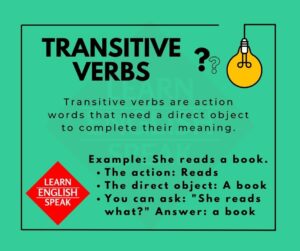Subject-verb agreement is a fundamental aspect of English grammar that ensures your sentences are clear and grammatically correct. When writing or speaking, it’s essential to ensure that the subject and verb in a sentence match in number (singular or plural). Here, we’ll explore 14 key rules with examples to help you perfect your subject-verb agreement skills.
1. Singular subjects require singular verbs, and plural subjects require plural verbs.
- Singular: She is a doctor.
- Plural: They are students.
- Singular: The cat runs fast.
- Plural: The cats run around.
2. Compound subjects joined by “and” usually take a plural verb.
Example:
- Tom and Jerry are friends.
- Apples and oranges make a tasty fruit salad.
- The dog and the cat chase each other.
3. When compound subjects are joined by “or” or “nor,” use the verb that agrees with the subject closest to the verb.
Example:
- Neither the cat nor the dogs are friendly. (Because “dogs” is closer to the verb.)
- Either the teacher or the students have the answer. (Because “students” is closer to the verb.)
- Neither the book nor the magazines belong to me. (Because “magazines” is closer to the verb.)
4. Indefinite pronouns like “everyone,” “each,” “neither,” and “either” take singular verbs.
Example:
- Everyone wants to go.
- Neither of them is available.
- Each of the students has a textbook.
5. Indefinite pronouns like “both,” “several,” and “many” take plural verbs.
Example:
- Many people are attending the conference.
- Both of my brothers like pizza.
- Several cars were parked in the lot.
6. Collective nouns can take singular or plural verbs depending on the context.
- Singular: The team is playing well. (Acting as a unit)
- Plural: The team are arguing. (Emphasizing individual members)
- Singular: The jury deliberates carefully.
- Plural: The jury disagree on the verdict.
7. Subjects that express a single amount, quantity, or percentage usually take a singular verb.
Example:
- Fifty percent of the pizza has been eaten.
- The majority of the voters supports the new law.
- A gallon of milk costs $3.
8. Subjects that express multiple amounts, quantities, or percentages can take singular or plural verbs depending on context.
- Singular: Ten dollars was on the table. (Treating it as a single amount)
- Plural: Ten dollars were scattered. (Emphasizing individual bills)
- Singular: One-third of the pie was consumed.
- Plural: Two-thirds of the cookies were eaten.
9. Titles, names of companies, and words treated as singular entities take singular verbs.
Example:
- Microsoft develops software.
- “The Great Gatsby” is a classic novel.
- The committee meets every Wednesday.
10. When the subject is “none” or “no,” the verb can be singular or plural, depending on the intended meaning.
- Singular: None of the cake is left. (No part is left)
- Plural: None of the students were absent. (All students are accounted for)
- Singular: No one likes rainy days.
- Plural: No visitors are allowed after hours.
11. Inverted sentences (beginning with “here” or “there”) use the subject closest to the verb to determine agreement.
Example:
- Here is the book.
- There are many reasons to be optimistic.
- Here comes the bride!
12. Remember that some irregular verbs don’t follow the usual -s or -es pattern for the third person singular.
Example:
- He goes to school. (Not “go”)
- She has a beautiful garden. (Not “have”)
- It does the job perfectly. (Not “do”)
13. Phrases that start with “as well as,” “along with,” or “together with” take a singular verb.
Example:
- The dog, as well as the cat, is in the yard.
- The singer, along with the band, performs tonight.
- The teacher, together with the students, enjoys field trips.
14. Subjects with “One of”: When the subject contains the phrase “one of,” the verb should agree with the noun that follows “one of.” If the noun following “one of” is singular, use a singular verb; if it’s plural, use a plural verb.
Example:
- Canada is one of my favorite countries. (Singular)
- The books on the shelf are one of my interests. (Plural)
By mastering these subject-verb agreement rules and practicing with diverse examples, you’ll enhance your writing and communication skills. Accurate agreement ensures your message is conveyed effectively, making your English language usage more polished and precise.
Stay tuned for more engaging lessons on grammar and follow us on our Facebook page: Learn English – Speak English




